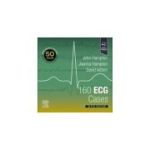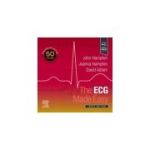Diabetic Cardiomyopathy Biochemical and Molecular Mechanisms

Preț: 756,00 lei
Disponibilitate: în stoc la furnizor
Autor: Turan, Belma, Dhalla, Naranjan S. (Eds.)
ISBN: 978-1-4614-9316-7
Editura: Springer Nature
Anul publicarii: 2014
Pagini: 420
Categoria: CARDIOVASCULAR MEDICINE
DESCRIERE
Provides an in-depth analysis of biochemical and molecular mechanisms of cardiac dysfunction in diabetic cardiomyopathy
Contains state-of-the-art reviews from leading experts all over the world in the area of cardiac dysfunction
Emphasizes molecular, subcellular, and signal transduction mechanisms of contractile dysfunction in chronic diabetes
Diabetes has long been recognized as a disease of high blood sugar, and there has been a continuous search of the exact reason for its development and effective treatment. In 2005, the World Health Organization had estimated that more than 180 million people worldwide suffer from diabetes mellitus and indicated that this figure is likely to double within the next 20 years. Among the 3.8 million deaths each year associated with diabetes, about two thirds are attributable to cardiovascular complications, and diabetes is now considered to be a major metabolic risk factor for the occurrence of heart disease.
Diabetic Cardiomyopathy: Biochemical and Molecular Mechanisms is a compilation of review articles devoted to the study on the topic with respect to biochemical and molecular mechanisms of hyperglycaemia. The wide range of areas covered here is of interest to basic research scientists, clinicians and graduate students, who are devoted to study the pathogenesis of diabetes-induced cardiovascular dysfunction. Furthermore, some chapters are directed towards increasing our understanding of novel ways for the prevention/treatment of cardiomyopathy.
Twenty five articles in this book are organized in three sections. The first section discusses general aspects of the metabolic derangements in diabetic cardiomyopathy including metabolic alterations and substrate utilization as well as cardiac remodelling in the heart; role of diet in the development of metabolic syndrome in the heart; effect of hyperglycaemia in terms of biochemical and structural alterations in heart. In the second section, several cellular and molecular mechanisms are discussed indicating that diabetic cardiomyopathy is a multifactorial and complex problem. The third section discusses the prevention and treatment of diabetes using appropriate diet, proper supplements including antioxidants, angiotensin inhibitors and some other drugs. All in all, this book discusses the diverse mechanisms of diabetic cardiomyopathy with some information on new therapeutic approaches for finding solutions to prevent or reverse the development of cardiac dysfunction.
Contains state-of-the-art reviews from leading experts all over the world in the area of cardiac dysfunction
Emphasizes molecular, subcellular, and signal transduction mechanisms of contractile dysfunction in chronic diabetes
Diabetes has long been recognized as a disease of high blood sugar, and there has been a continuous search of the exact reason for its development and effective treatment. In 2005, the World Health Organization had estimated that more than 180 million people worldwide suffer from diabetes mellitus and indicated that this figure is likely to double within the next 20 years. Among the 3.8 million deaths each year associated with diabetes, about two thirds are attributable to cardiovascular complications, and diabetes is now considered to be a major metabolic risk factor for the occurrence of heart disease.
Diabetic Cardiomyopathy: Biochemical and Molecular Mechanisms is a compilation of review articles devoted to the study on the topic with respect to biochemical and molecular mechanisms of hyperglycaemia. The wide range of areas covered here is of interest to basic research scientists, clinicians and graduate students, who are devoted to study the pathogenesis of diabetes-induced cardiovascular dysfunction. Furthermore, some chapters are directed towards increasing our understanding of novel ways for the prevention/treatment of cardiomyopathy.
Twenty five articles in this book are organized in three sections. The first section discusses general aspects of the metabolic derangements in diabetic cardiomyopathy including metabolic alterations and substrate utilization as well as cardiac remodelling in the heart; role of diet in the development of metabolic syndrome in the heart; effect of hyperglycaemia in terms of biochemical and structural alterations in heart. In the second section, several cellular and molecular mechanisms are discussed indicating that diabetic cardiomyopathy is a multifactorial and complex problem. The third section discusses the prevention and treatment of diabetes using appropriate diet, proper supplements including antioxidants, angiotensin inhibitors and some other drugs. All in all, this book discusses the diverse mechanisms of diabetic cardiomyopathy with some information on new therapeutic approaches for finding solutions to prevent or reverse the development of cardiac dysfunction.
Categorii de carte
-Comandă specială
-În curând...
-Edituri
-Promo
-Publicaţii Callisto
-Cărţi noi
-- 992,25 leiPRP: 1102,50 lei
- 321,30 leiPRP: 357,00 lei
- 168,00 lei
Promoţii
-- 992,25 leiPRP: 1102,50 lei
- 321,30 leiPRP: 357,00 lei
- 434,70 leiPRP: 483,00 lei












REVIEW-URI